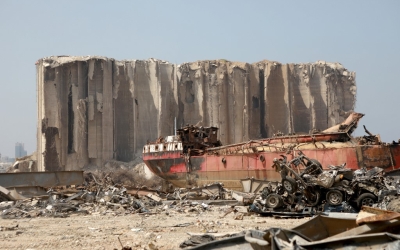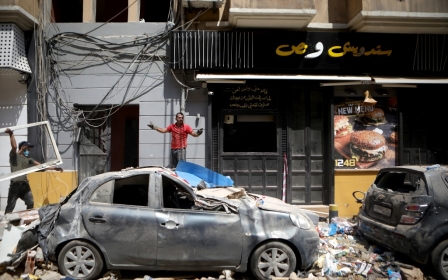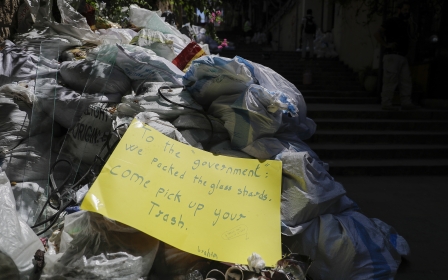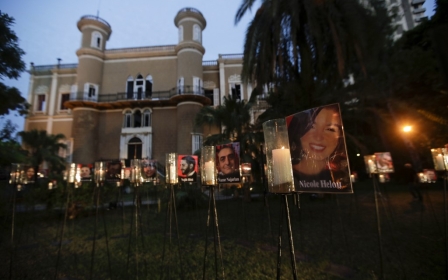Beirut explosion: Mourners gather to mark two months since devastating blast
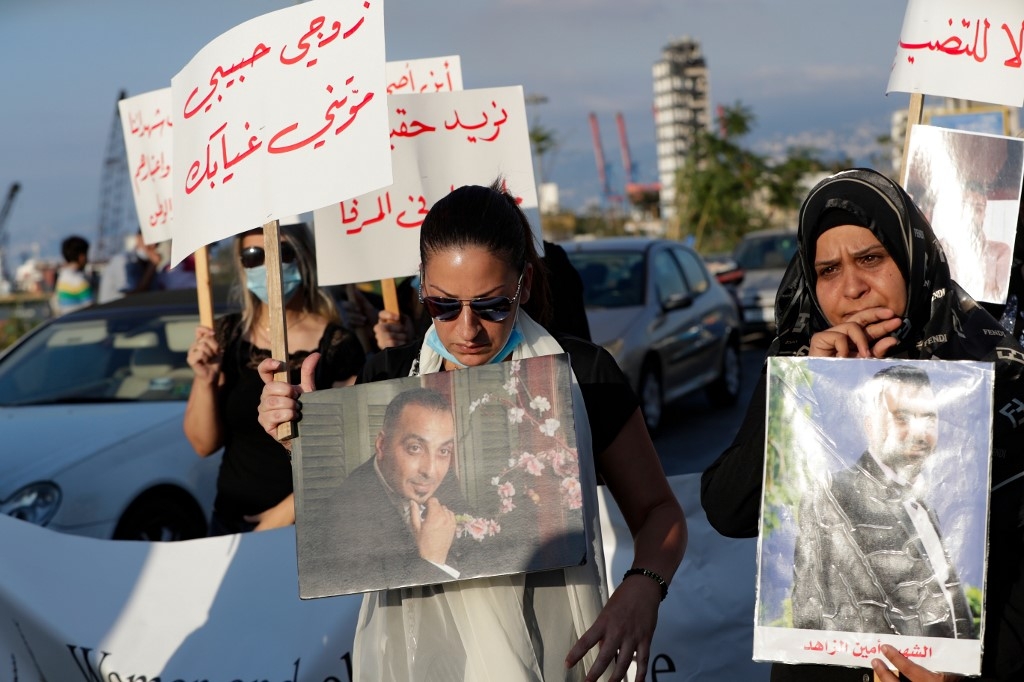
Dozens of mourners gathered on Sunday near what remains of Beirut's port to mark two months since a huge explosion ripped through the city.
The 4 August blast, widely blamed on Lebanon's political class, through a mixture of corruption and incompetence, killed more than 190 people and wounding over 6,500.
New MEE newsletter: Jerusalem Dispatch
Sign up to get the latest insights and analysis on Israel-Palestine, alongside Turkey Unpacked and other MEE newsletters
Two months later, an investigation into the disaster has yet to make public its results, further stoking public anger in a country mired in a deep economic crisis and battered by the coronavirus pandemic.
On Sunday just after 6pm (3pm GMT), at the exact time of the explosion, balloons bearing the names of each of those who died were released into the sky from a street overlooking the port.
A large sound system played a rendition of the national anthem as well as Lebanese songs.
Bereaved family members and activists, holding portraits of the victims and placards demanding justice, briefly blocked the road to traffic and voiced anger at the country's political class.
'God have vengeance on them'
"Is it too much to ask to know who committed this crime against humanity?" asked Samia, a mother of two, whose husband worked at the port and died in the explosion. "Every day we die a hundred deaths. My children have been deprived of the word 'Baba' for their entire lives."
Salwa lost her uncle, who also worked at the port.
'Is it too much to ask to know who committed this crime against humanity?'
- Samia, whose husband died in the port explosion
"He was like a father to me," she said. "How could God forgive them, but may God forgive" those responsible, she added. "We demand that everyone who had a hand in this disaster is punished."
Another woman nearby interrupted her: "God have vengeance on them!"
The immediate cause of the blast was a huge stockpile of ammonium nitrate, a highly explosive fertiliser, stored without safeguards for over six years in a warehouse on the portside and ignited by a fire nearby.
Lebanese authorities have rejected calls for an international investigation into the incident, instead launching their own probe, which has so far resulted in around 25 arrests.
President Michel Aoun has acknowledged he was aware of the presence of the ammonium nitrate days before the blast, while other senior officials also knew of it and the dangers it posed to nearby residential neighbourhoods, according to anonymous officials.
Middle East Eye delivers independent and unrivalled coverage and analysis of the Middle East, North Africa and beyond. To learn more about republishing this content and the associated fees, please fill out this form. More about MEE can be found here.


